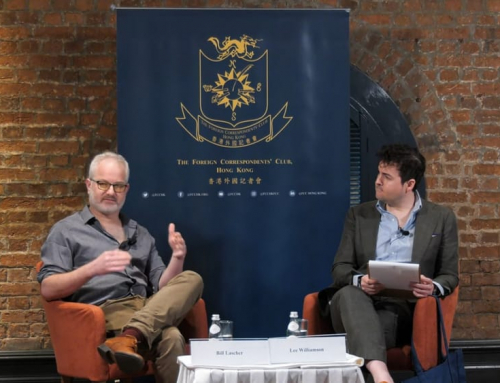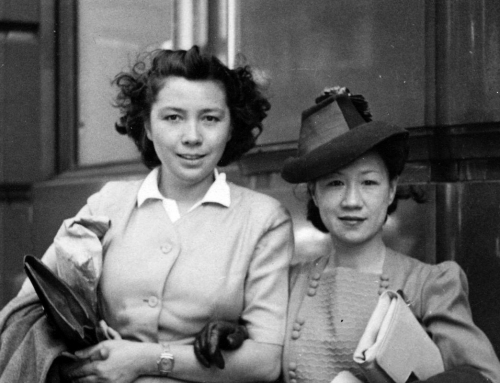 Hong Kong movie star Francis Ng Chun-yu (吳鎮宇) is more than an award-winning actor… he’s also a director, scriptwriter and now the author of Tibetan fairy tale Pelma’s Tears.
Hong Kong movie star Francis Ng Chun-yu (吳鎮宇) is more than an award-winning actor… he’s also a director, scriptwriter and now the author of Tibetan fairy tale Pelma’s Tears.
What led city-born Francis to write about people and events on the far-off Tibetan plateau? The idea came to him when a visit to monasteries and orphanages in the region was interrupted by a dramatic accident. In his own words:
Two years ago my friends in Qinghai took me in their jeep on a long journey to visit lama temples and observe the living conditions of Tibetan villagers in the remote area of Kekexili. Along the way we often saw colorful flags printed with scriptures standing in strong, freezing winds which stung our faces and roared in our ears.
On the plateau, 4,500 meters above sea level, the weather is always severe. The Tibetan villagers in this area often keep herds and live scattered from each other. This has slowed down the area’s educational development, and charity work has been difficult. Therefore, when I saw the happy children in an orphanage, I was particularly worried about their future education. Several orphans had been left by their nun-mothers, and their futures seemed bleaker than those of the others. I decided to financially support these “nuns’ orphans”, and I knew my wife would also be happy to do this kind of charity.
My friends who accompanied me on the trip were all devout Tibetan Buddhists. They told me that a high lama in Yushu, near the Tibetan Autonomous Region, had just finished his 15-year practice of austerities inside a cave, and they wanted to introduce me to him. As we were heading to Lhasa, we went to Yushu across the River Tortor. We stayed in the jeep for several days, driving around in the midst of wilderness. Growing up in the busy city of Hong Kong, I could not help but be afraid of dealing with nature in this fashion. I felt amazingly warm and safe every time I saw a herdsman or any passing vehicle.
We suddenly heard a whizzing sound, as a van going too fast overtook our jeep and then disappeared from sight. Soon we heard the screeching sound of an accident in front of us. We stopped at the accident site and discovered that the van had careered off the road. The entire vehicle had fallen into a creek. We had no time to think, but ran out to rescue the injured before it was too late. We managed to get two injured men out of the van, which was covered by the water, but another person was unconscious inside the vehicle, trapped in the wreckage. I crossed to the other side of the creek to look into the van and discovered that the injured passenger was an old lady. Using all my strength I pulled her out of the tight grip of the metal, and then carried her on my back and attempted to cross the creek in order to put her down on the roadside. However, the water ran very fast, and I decided not to risk injuring the old lady further. Instead I carried her a long distance along the river bank until I found a safe place to cross.
On the 4500-meter plateau, people coming from the lowlands are warned not to engage in any strenuous activity, and I would usually become dizzy and nauseous if I ran fast for even two minutes. However, I totally forgot about my physical limitations when rescuing this old woman on the high plateau.
That night we stayed in a Tibetan village nearby. Perhaps I was suffering somewhat from high altitude sickness, or perhaps I was still excited about the rescue, but for the whole night I could not sleep. I looked at the stars, letting my thoughts wander. Strange thoughts came into my mind.
I thought about the orphans I’d just met. They seemed happy, as if they didn’t know what tears were. But what lives would they have when they grew up? When I was small I loved to read translations of children’s fantasies from Western novels. Unfortunately, all those lovely magic stories and legends left me when I became an adult. However, under that starry sky, those fantasies which had made me happy as a child were now all coming back. They took my heart along that stormy creek, flowing to a fantastic place where I could forget all rules and realities except happiness – a pure place where I had been for the moment while I tried to rescue the injured, without thinking of anything.
The idea for Pelma’s Tears took root, and Francis collaborated with Hong Kong author Yeeshan Yang to complete the story, with a screenplay also in mind. To get a better understanding of Tibetan culture, Yeeshan followed in Francis’ footsteps:
I embarked on my fieldwork in June, along Pelma’s route across the Qinghai plateau. I learned a little Tibetan, visited a remote nunnery, and talked to Tibetans. I know that there are no corners of the world still untouched by modernity, but compared to those living in the Lhasa area, the Tibetans in Qinghai Province seem to have deviated less from their traditional lifestyles. My fieldwork focused on the Amdo region of Tibet, where I collected a lot of precious cultural information.
When the story was fully developed, we presented it at the 5th Hong Kong and Asia Film Forum. The first draft of the film script was finalized in May 2007, in both English and Chinese. It was well received by friends who read it. A friend who lived in Tibet for many years said that Pelma brought him back to the Tibetan villages.
The fine film director Ann Hui was surprised that two authors from completely different backgrounds, who had hardly known each other, were able to clash and produce such inspired sparks. Indeed, this kind of co-authorship was not easy to form, especially when the two of us had worked with no promise of income. We believe that it is Pelma who chose us, who waited for the specific timing to enter our lives, and continuously made us work harder and harder. Rather than creating Pelma, our successful partnership was created by her.
Read more about the book and how it was written.





Leave A Comment